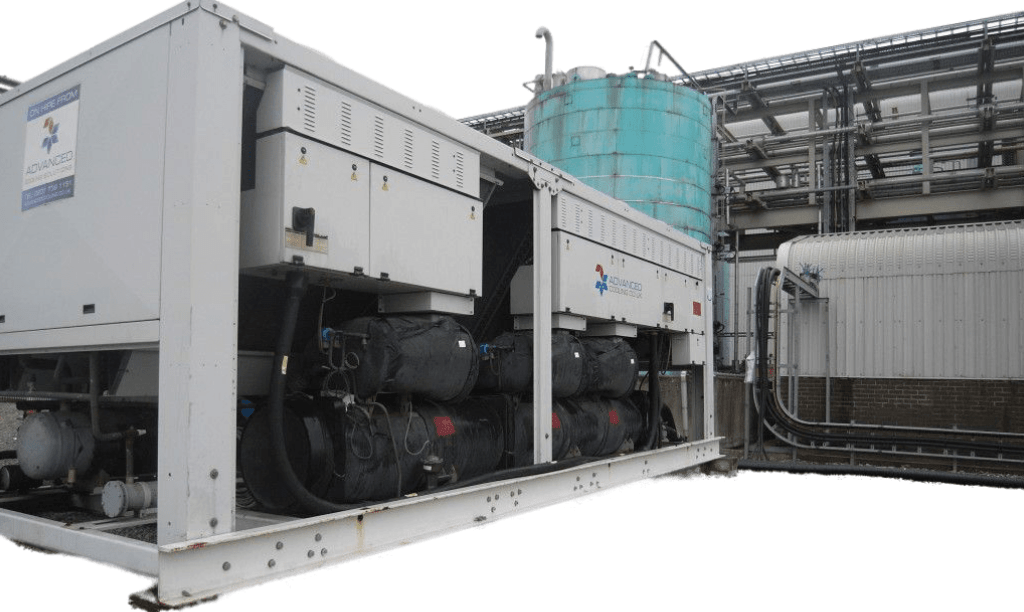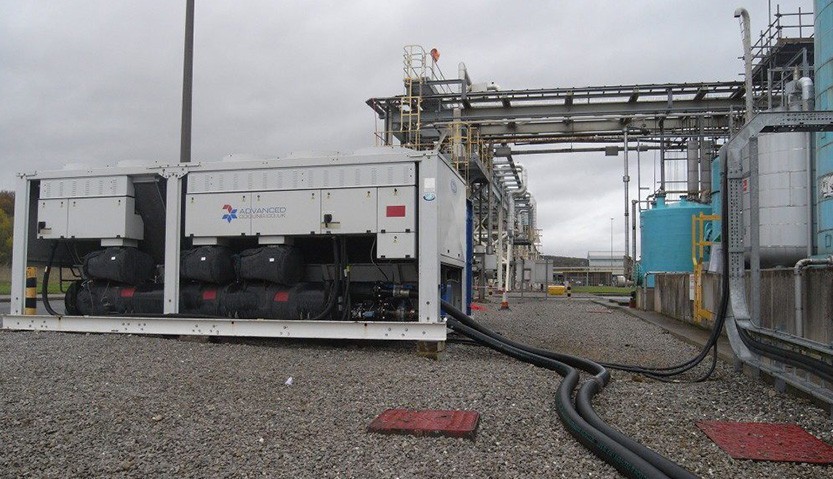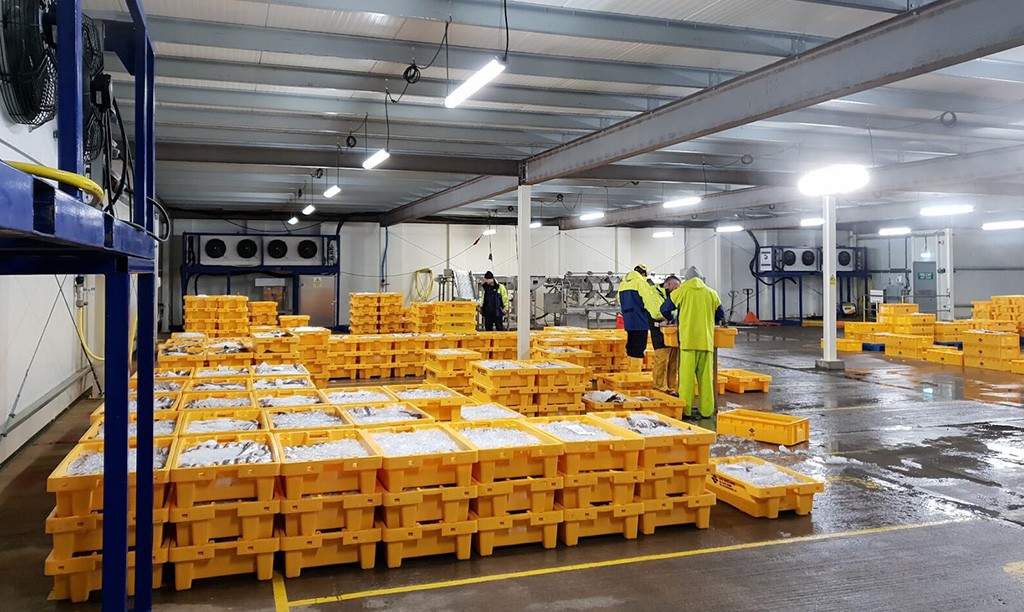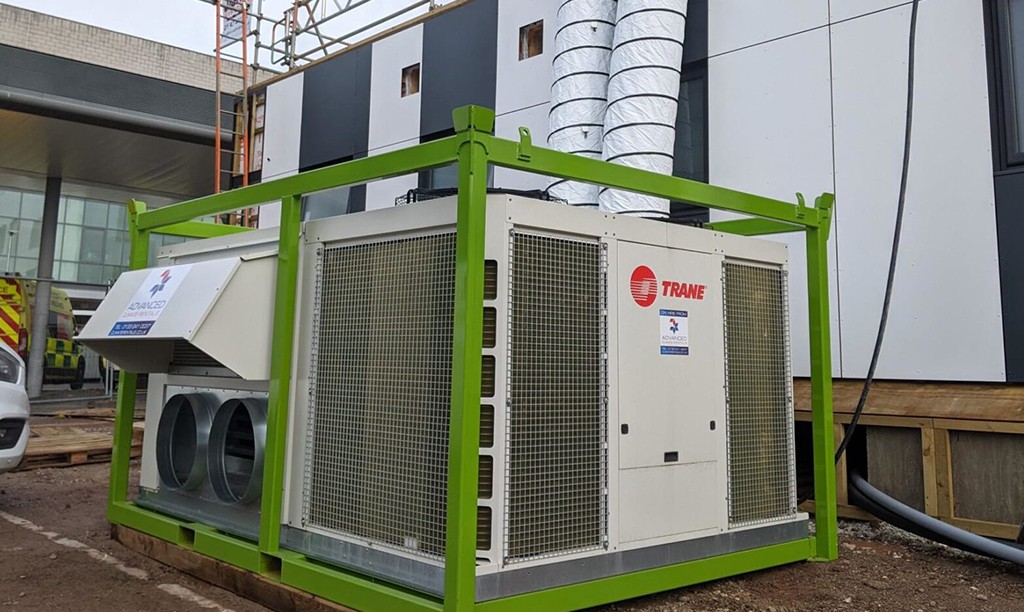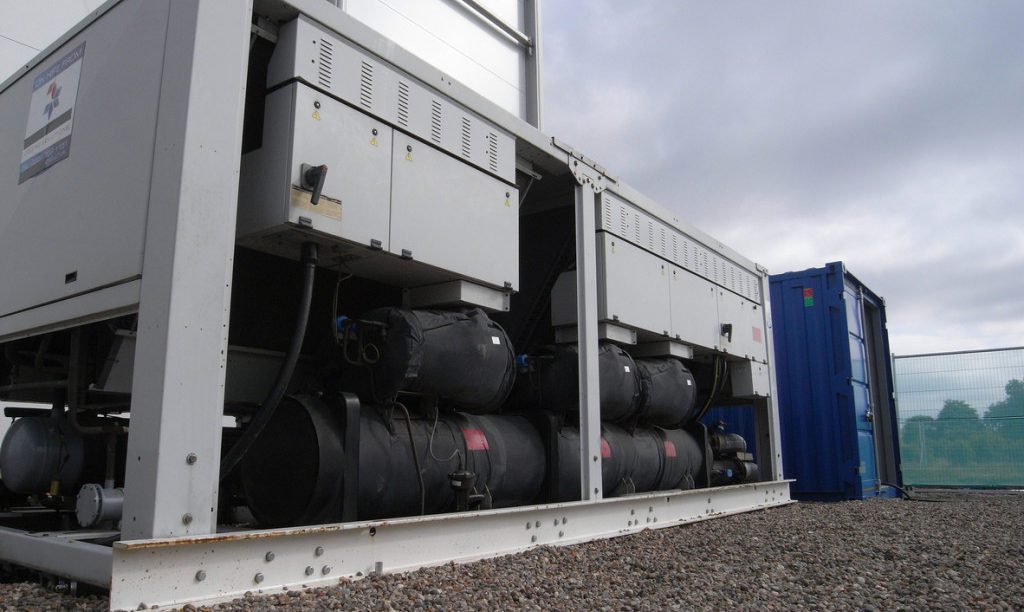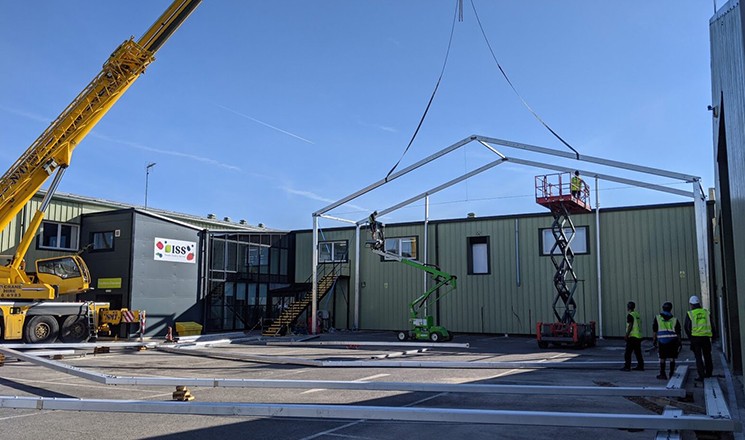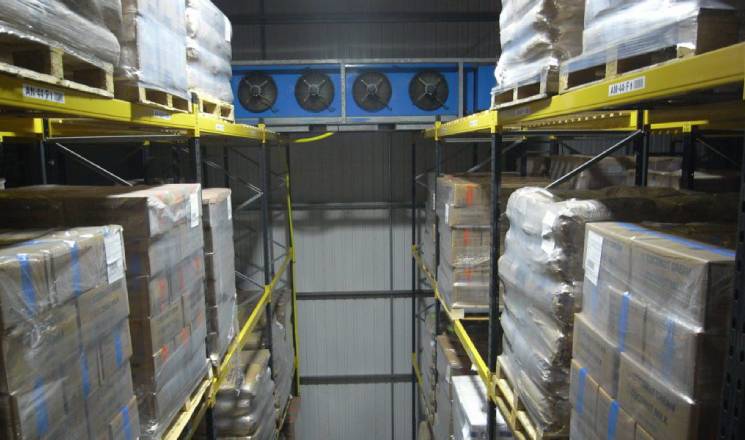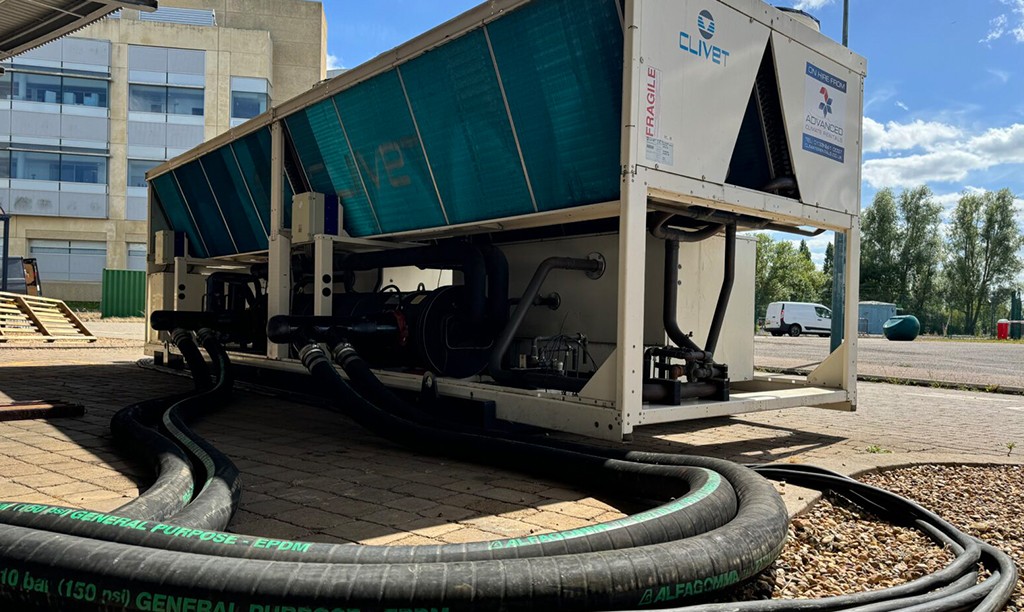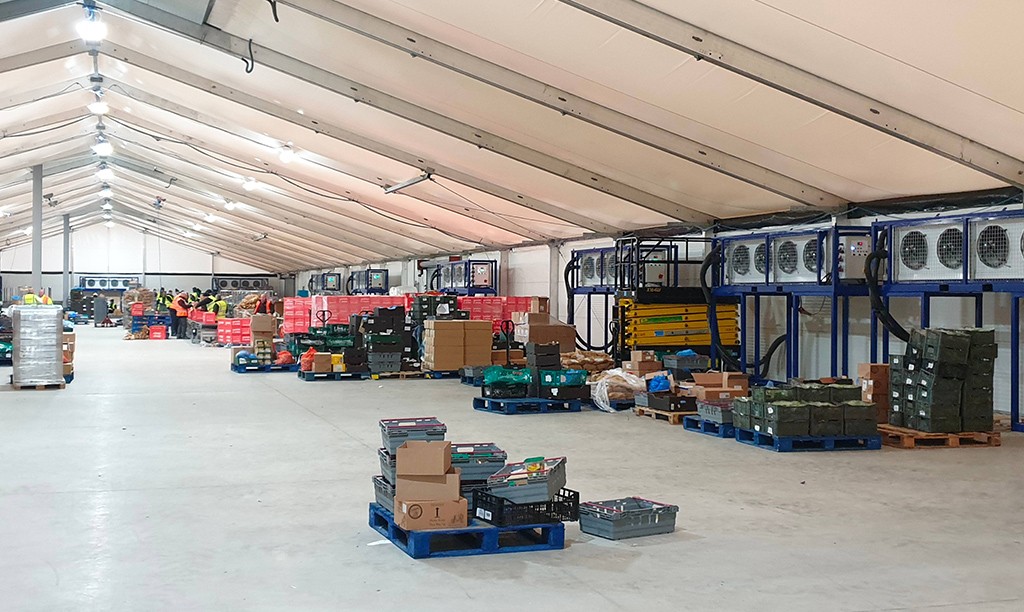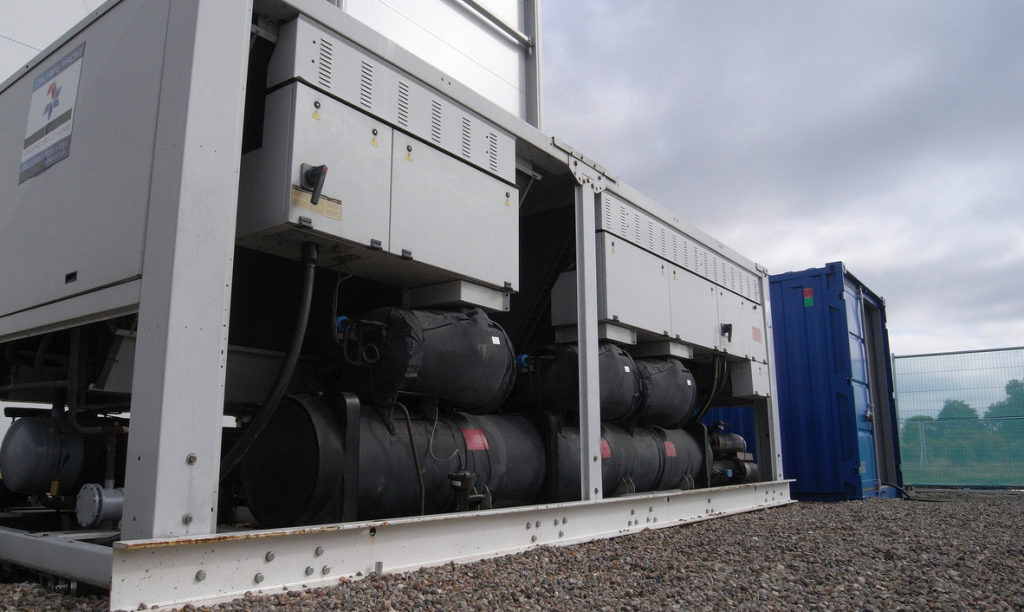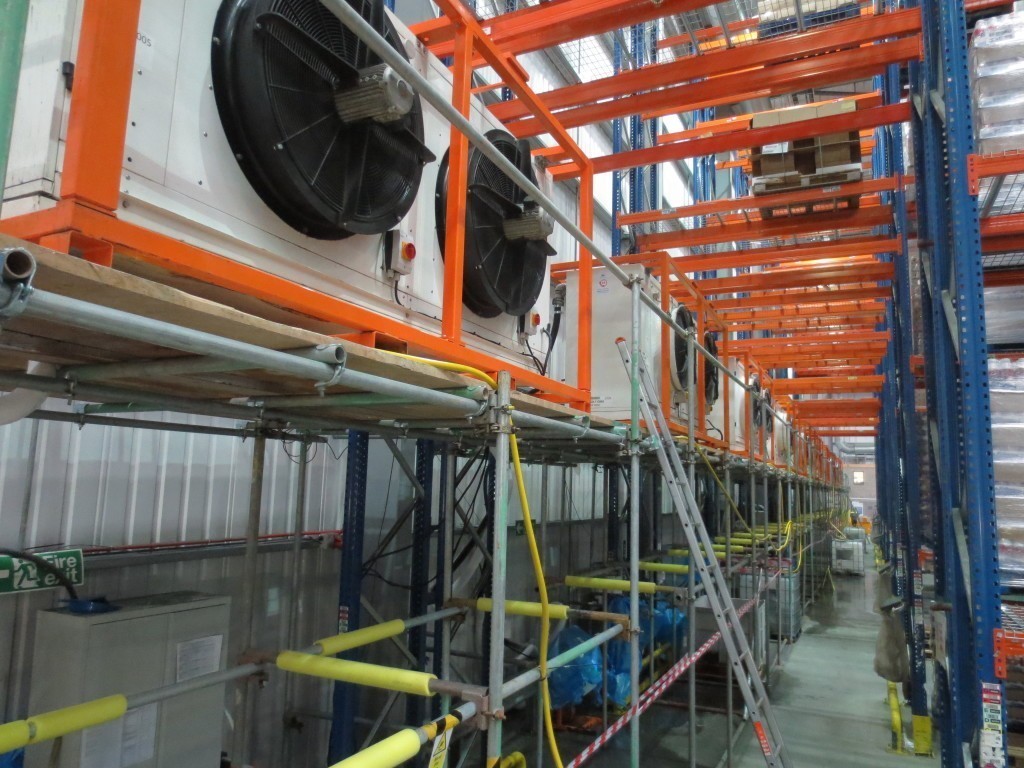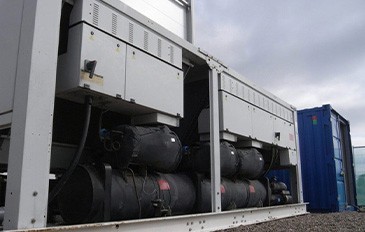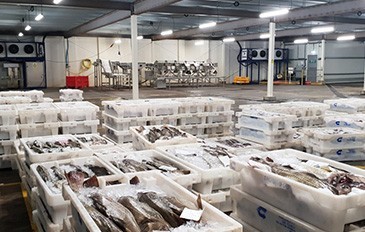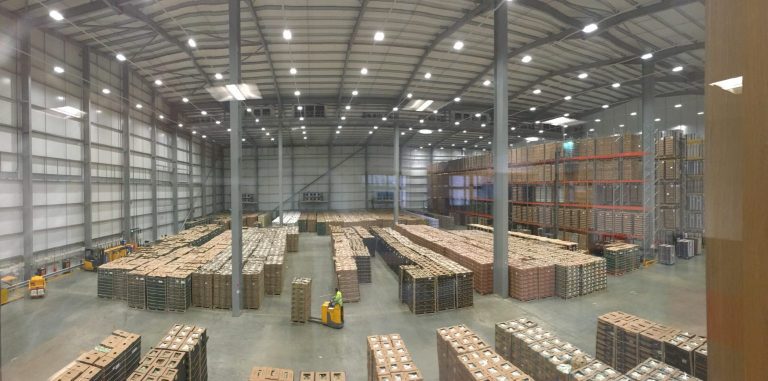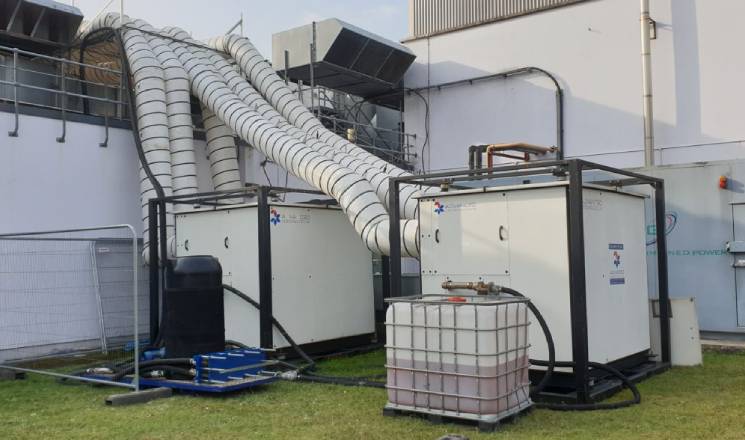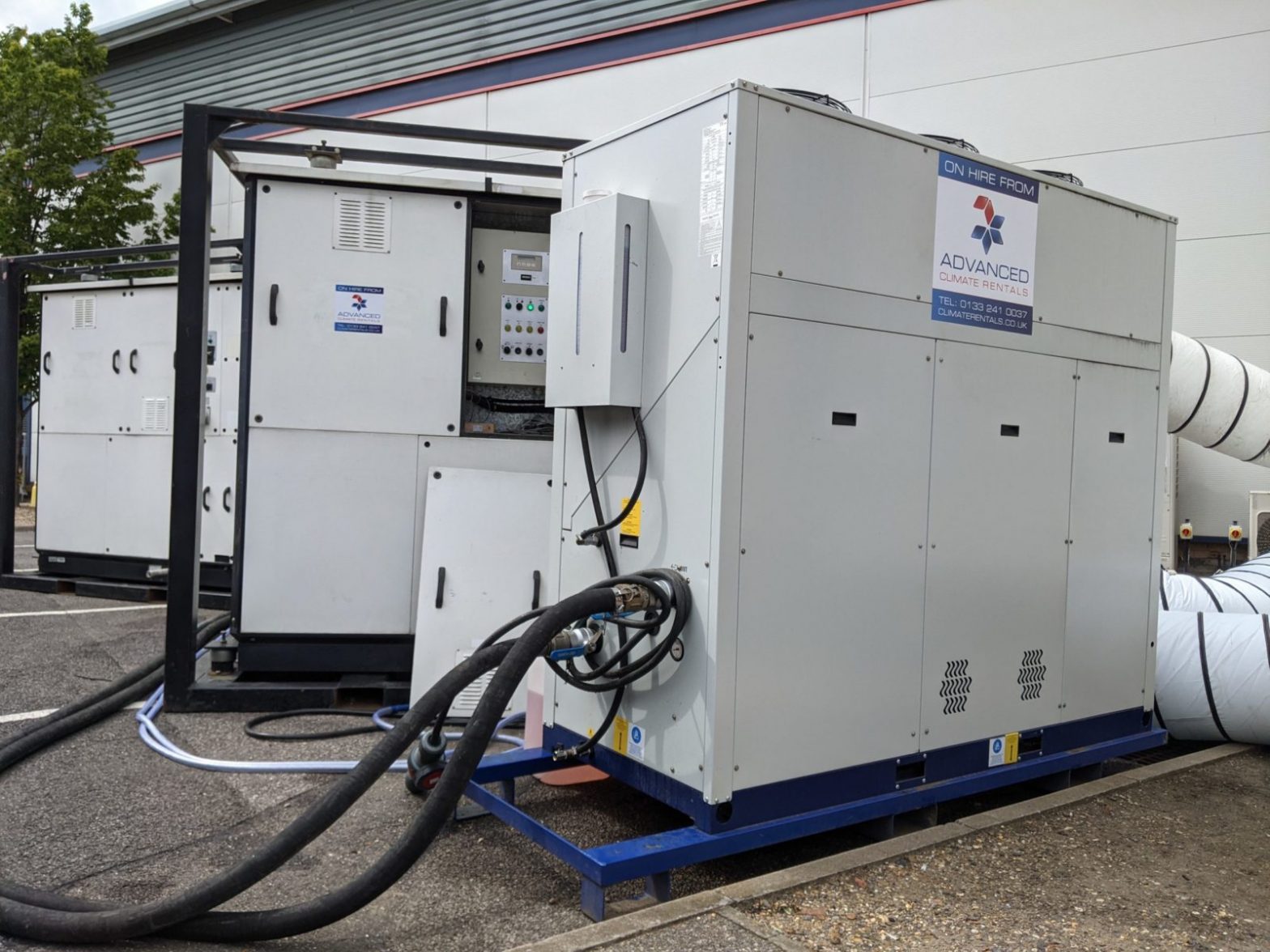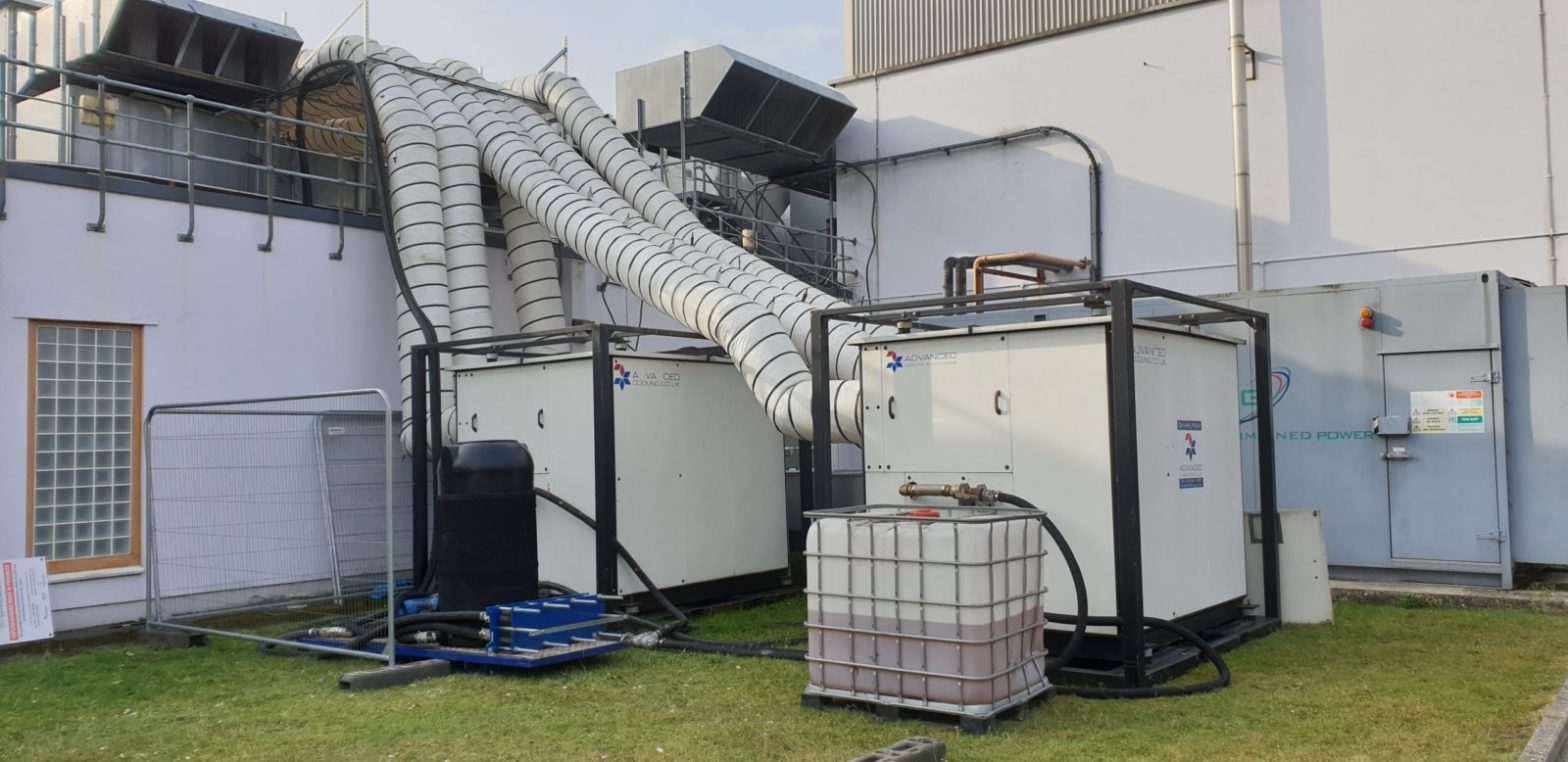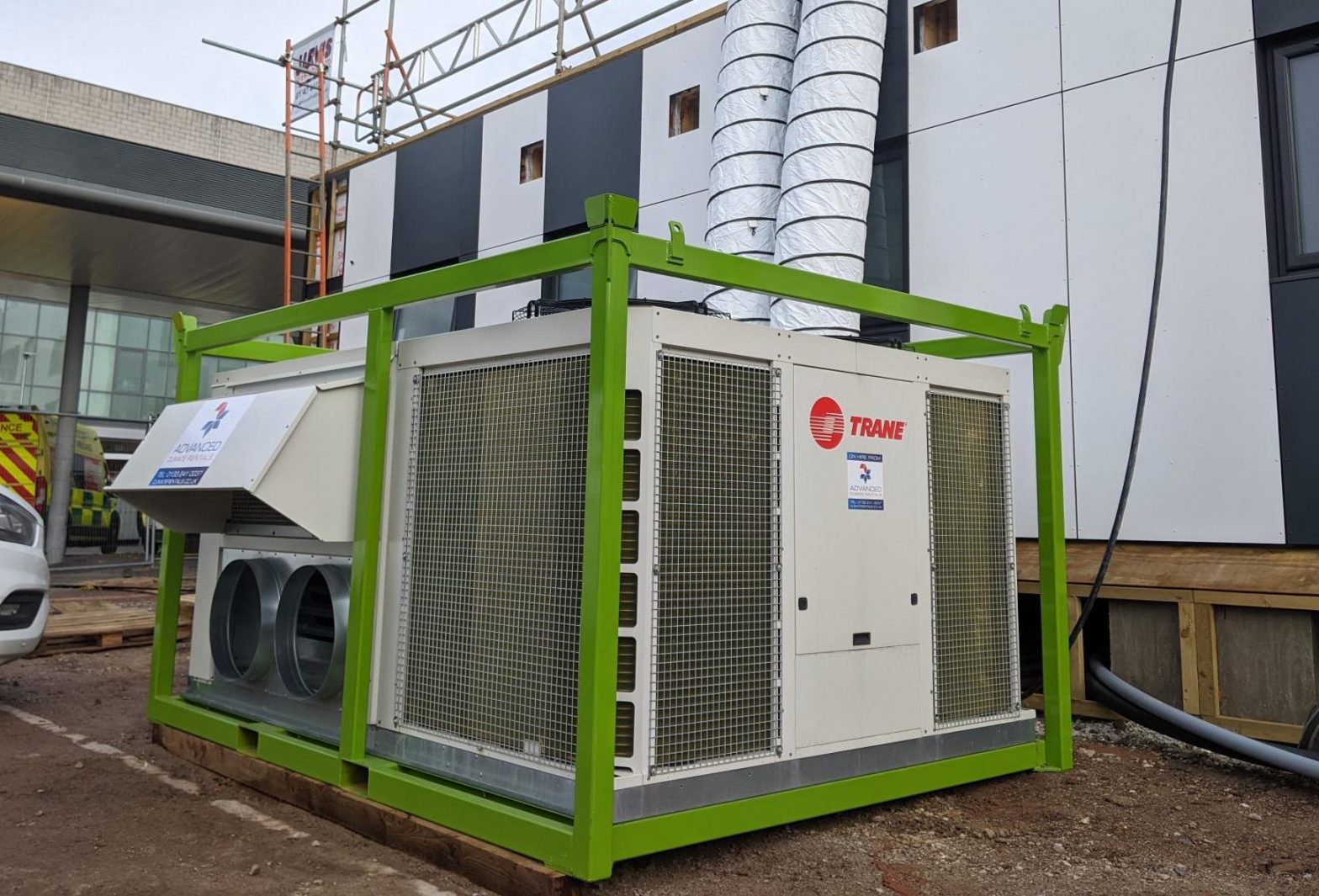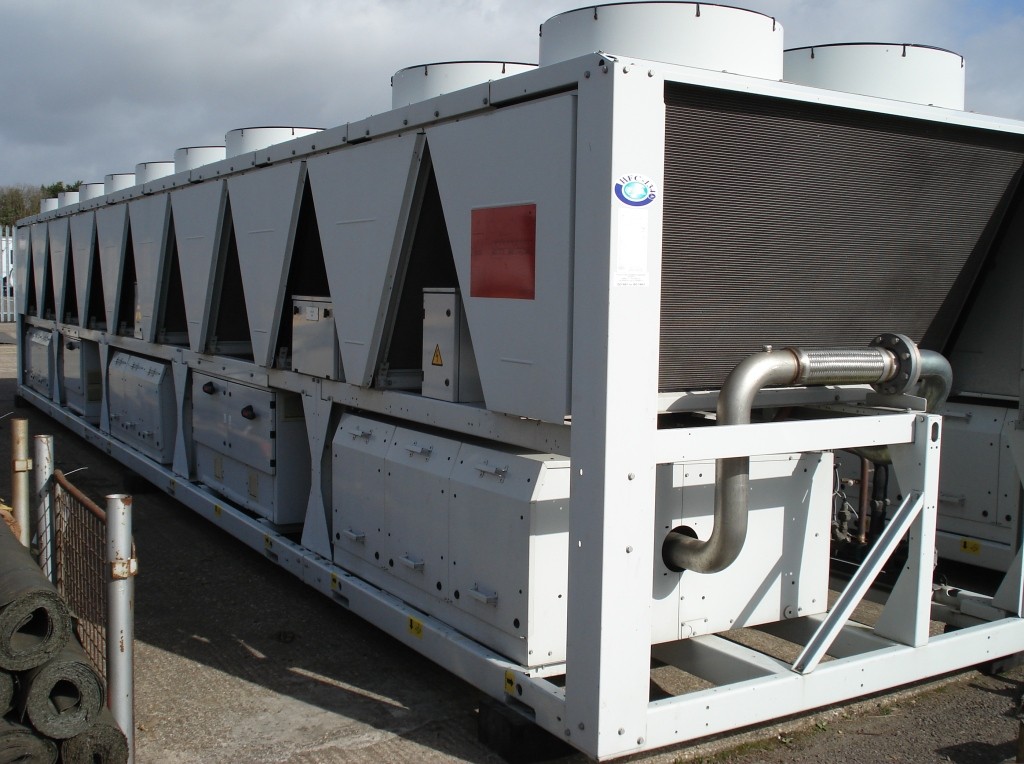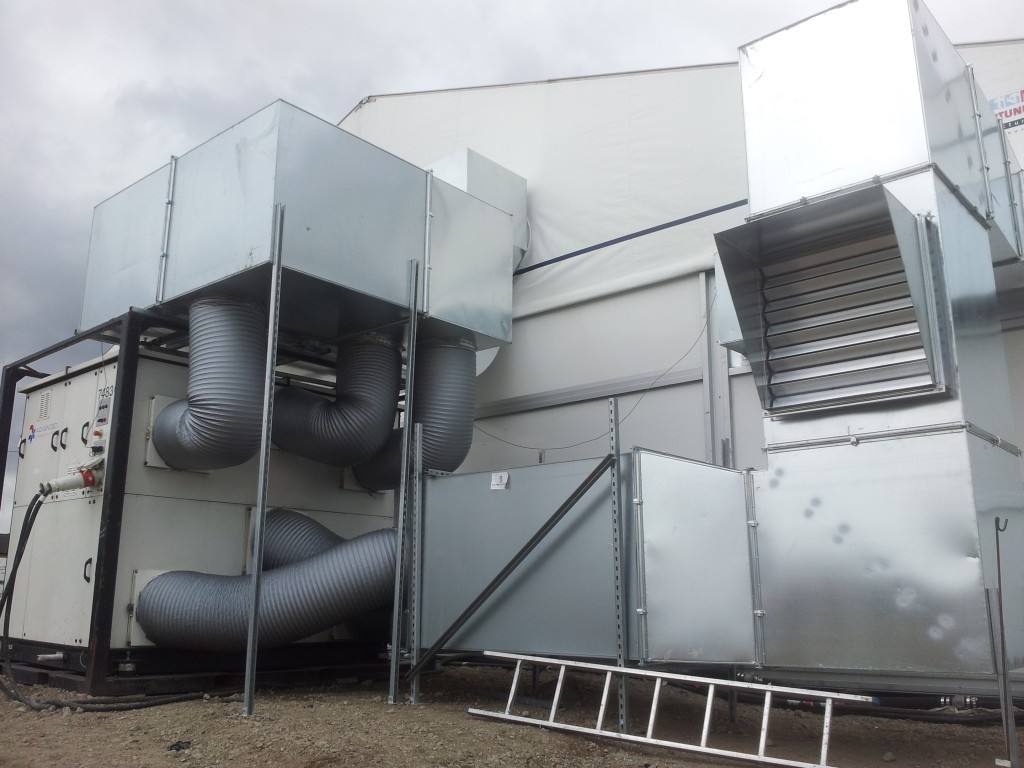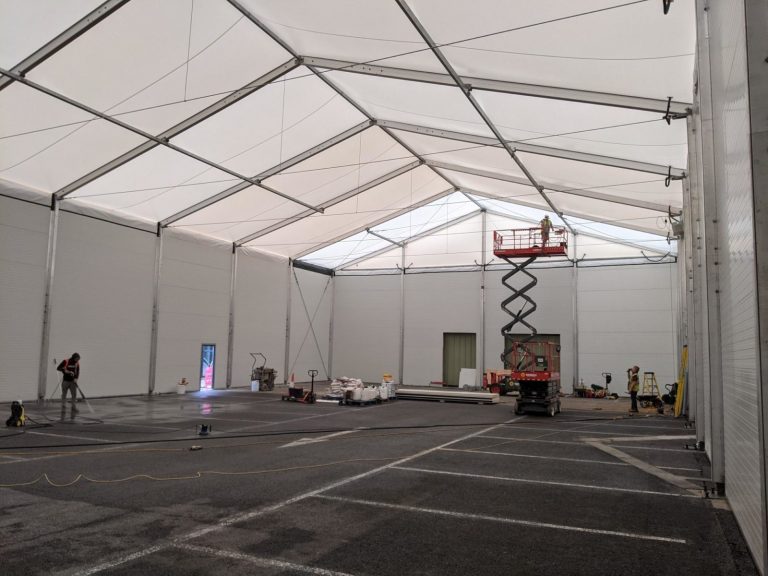A chiller helps to prevent overheating in workspaces from pieces of equipment and machinery. Chillers help to keep the internal temperature pleasant, making a better work environment for employees as well as reducing the chance of equipment overheating and malfunctioning.
Chillers are used across a wide range of industries, but you’re most likely to find them in warehouses, manufacturing, and other industrial, commercial buildings. Even if you haven’t heard of a chiller before, there’s a decent chance your business uses them.
While chillers do use some thermal dynamics, you don’t have to be a science whizz to understand the basics. A chiller compresses a refrigerant gas, turning it into a high-temperature vapour.
This high-pressure vapour flows into a condenser, where it’s condensed into a liquid while releasing heat into the environment. The next step for the liquid is to move into an expansion valve. This valve reduces the liquid’s pressure, which also decreases its temperature significantly.
Next, the liquid will flow into the evaporator, where the refrigerant absorbs heat from the equipment the chiller is cooling. This process makes it evaporate and transform again into a gas. Absorbing heat from the environment is the cooling process, keeping the area outside of the chiller as cool as possible and making it more comfortable for workers.
This cycle then continues on and on while the chiller is in use. You can control how the chiller works using a controller, but for the most part, this useful piece of kit will just do its thing.
There’s no one-size-fits-all usage case for chillers – they’re used across various industries and sectors. By better understanding how and when chillers are hired, you can establish whether your business could benefit from one.
Manufacturing. Factories are full of equipment and machinery that’s prone to overheating. Chillers can help to keep the space (and the machinery) cool.
Data centres. Data centres are filled with giant servers that generate considerable heat. Chiller hire can help to keep these data centres safe and reduce the risk of overheating or electrical fire.
Healthcare. Chiller use is on the right in healthcare industries. In the pharmaceutical industry in particular, chiller hire is common in factories and laboratories where medical supplies are made using specialist healthcare equipment.
You can purchase chillers, but many businesses opt to rent instead due to various benefits.
Quick and easy installation. Purchasing a chiller can involve long wait times to ensure the item is in stock and then long wait times for delivery once purchased. Chiller rental tends to be much speedier, with a quick and easy installation process that will be carried out by your chosen chiller hire company. Expert installers can even hook up the existing equipment of the chiller units.
Flexible hire. There’s flexibility in rental services, meaning you don’t have to make any long-term commitments. Rather than finding the capital for a huge long-term cost and committing to owning an appliance for a while, renting is much more flexible, only requiring you to cover costs as long as you need it.
Repair and maintenance included. In many cases, repairs and maintenance are covered in your rental agreement, so you don’t have to worry about parting with extra cash, or, worse, trying to solve technical issues yourself.
Cost-effective. When you buy a chiller, you’re committing to a long-term expense. When you rent a chiller, you’re paying for something just as and when you need it, which is a much more cost-effective method.
